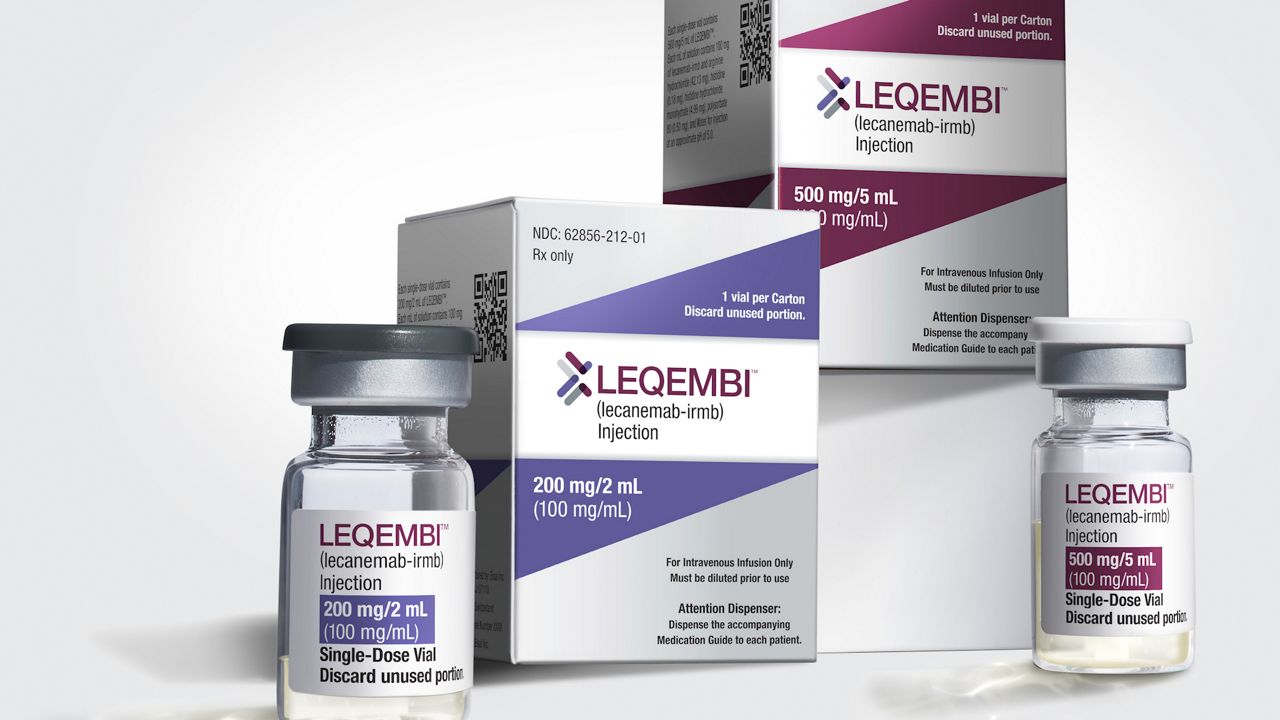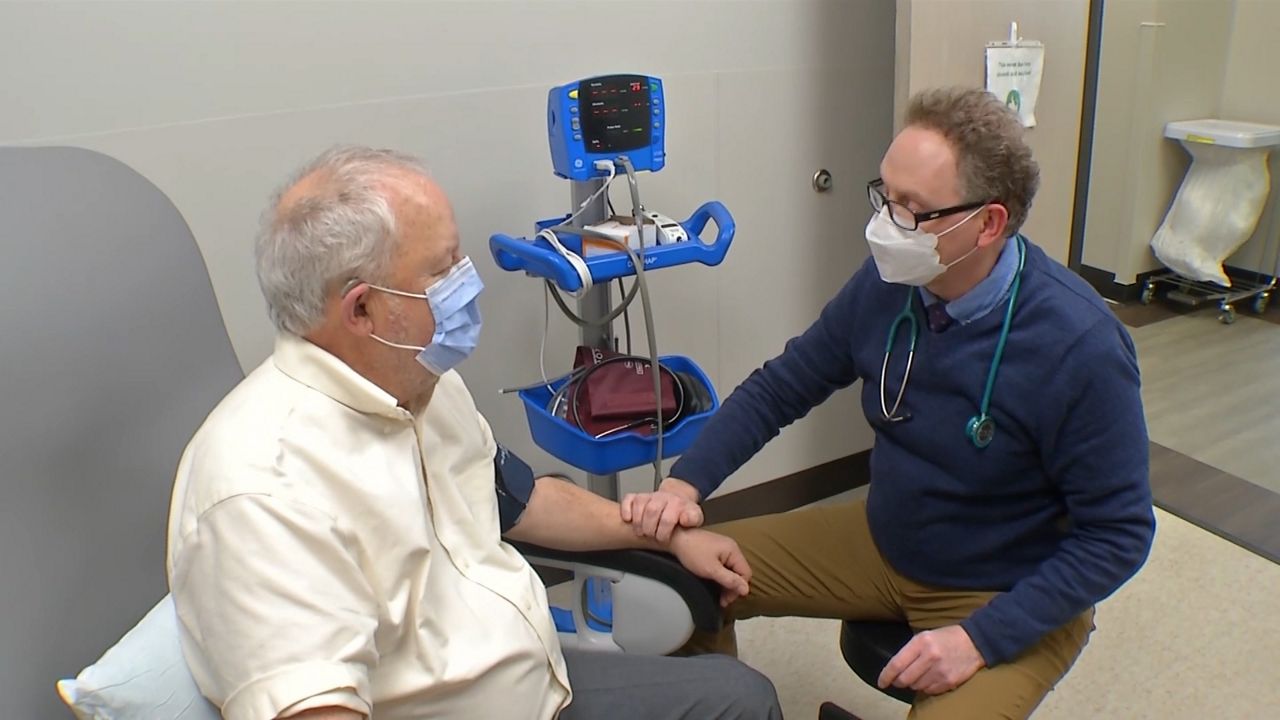One in nine Americans 65 and older have Alzheimer’s disease. It's a devastating condition that drastically changes a person and their family’s quality of life.
Decades of research have finally produced a promising drug - that experts hope could also prevent dementia symptoms from even developing in those at greatest risk.
National Health Reporter Erin Billups looks at a trial underway aimed at changing the future of Alzheimer’s disease.
For over 15 years, Ronald Reilley watched his sister Joan slip away as she battled Alzheimer's disease.
“She would be repeating things. She would be forgetting things,” said Reilley. “I mean, my sister was there, but her mind had left and it was very sad to see her go.”

About 6.5 million Americans are living with Alzheimer’s disease. It is estimated that number will double by 2050. Dr. Anton Porsteinsson, director of the Alzheimer's Disease Care, Research and Education Program at the University of Rochester said the so-called plaque and tangles that cause Alzheimer’s disease start building up in the brain 20 to 25 years before symptoms show.
“In the last two decades, we've come to the understanding that you don't wake up one day having Alzheimer's disease,” said Porsteinsson. “Our belief is that if we target those changes, we can prevent the cascade that then happens that ultimately leads to this accelerated brain cell death.”
At Rochester University’s School of Medicine, Porsteinsson and his team are exploring whether the onset of symptoms can be delayed, or even prevented. The university is one of 70 institutions taking part in the Ahead Study funded by National Institutes of Health
His team is using a medication already available to some Alzheimer’s patients experiencing cognitive impairment, Lecanemab, brand named Leqembi. It is the first FDA-approved drug proven to reduce beta amyloid plaque build up in the brain and slow the progression of Alzheimer's disease.

“We think that it's an opportune moment to take it much earlier in the disease course,” said Porsteinsson.
The double-blind clinical trials include people as young as 50, with a family history of Alzheimer’s, before they show signs of the disease.
Participants need to be in good cardiovascular health because in rare cases, the drug may cause bleeding in the brain.
“This drug it is so effective in clearing beta amyloid out of the brain. Beta amyloid can sit both on top of brain cells and in the arteries that kind of crisscross the brain and it will remove this toxic beta amyloid out of the arteries as well,” said Porsteinsson.
“But if that happens too quickly, before the vessel can kind of seal itself, you can have a temporary period where the vessel can become sleepy or leaky.”
At 70 years old Reilly volunteered for the study. He was told he also has the APOE 4 gene, which is shown to increase the risk of Alzhiemer’s. He felt he needed to participate in a study that may help pave the way to a world with fewer cases of Alzheimer’s disease.
“I saw what it did to my sister and how it affected her. And I know there's millions of people out there and the population is aging,” said Reilley. “In the long run, people have to do this. So I'm one of the ones.”

If lecanemab fails to slow progression in individuals with the APOE 4 gene, Porsteinsson said it may be back to square one. But he has been working with the drug for more than a decade and said he has never been more hopeful.
“We have strong faith and belief that this will work, but we have to prove it. This is a significant intervention. It's complex, it's costly, and we want to prove that it's effective,” said Porsteinsson.
Lecanemab infusions cost about $26,000. Porteinsson acknowledges it is a hefty price tag right now, but countered that when prevention is compared to the $320 billion annual cost of caring for Alzheimer’s patients, it may be worth it.
Eventually, experts hope manufacturing costs will go down and affordable generics will become available.





